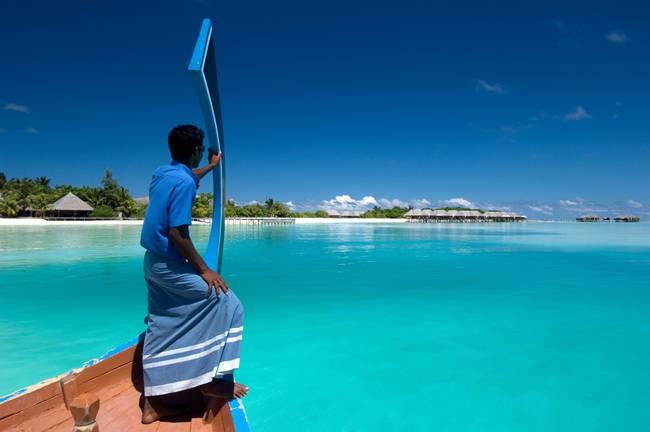
Global hospitality giant Hilton recently conducted research that the company says indicates consumers going away on business or pleasure are increasingly focused on environmental and social sustainability – and want the companies with which they trust their travel dollars to reflect these concerns.
To that end, TriplePundit recently caught up with Maxime Verstraete, Hilton’s vice president of corporate responsibility and ADA (Americans with Disabilities Act) compliance, and asked him a few questions.
3p: What are some big findings of this research?
Hilton: We recently surveyed 72,000 of our guests about whether they research a hotel company’s environmental and social efforts before booking. The results suggest a resounding “yes” and that social, environmental and ethical considerations are central to their buying preferences – especially for those younger than 25 years old.More specifically, 33 percent responded that they actively seek information on hospitality companies’ sustainability practices before booking. And, of that cohort, 60 percent conduct their own research into companies’ social, environmental and ethical practices, even if the information is not easily accessible.
3p: How is Hilton working with travel partners to ensure that travel is becoming more responsible?
Hilton: Being responsible social and environmental stewards is engrained in our culture and who we are as a company. In April, Chris Nassetta, our CEO and newly appointed chairman of the World Travel & Tourism Council, joined Patricia Espinosa, Executive Secretary of the UN Framework Convention on Climate Change, to issue a call to travel and tourism industry leaders in a “common agenda” to take action on climate change, implement the Paris Climate Agreement, and adopt science-based targets to reduce carbon emissions.We find ourselves in the Golden Age of Travel, as research continues to show the links between tourism and climate change. According to a recent University of Sydney study, global tourism’s carbon footprint contributes about 8 percent of all emissions—more than double the previous estimate from the World Travel Organization. In that light, the viability of our industry depends on our ability to adapt and to protect the resources that will support and sustain our growth. With the launch of our 2030 Goals, we’re in a quest to redefine sustainable travel and tourism and hope to lead the industry by example and encourage others to follow.
3p: How are you communicating this need to travel responsibly with consumers?
Hilton: The 2030 Goals reflect our efforts across the Hilton portfolio and global supply chain to halve our environmental footprint and double our investments in social impact. With the launch of these commitments, our guests can be confident that they are traveling responsibly when they stay with Hilton. As we execute our 2030 Goals, we will also work to expand opportunities for our guests to easily make additional sustainable decisions. Today we are testing some things such as including a hotel’s efforts on our Wi-Fi connection pages and through digital displays in public spaces. We also try to engage guests through programs like Meet with Purpose, our Digital Key technology and Connected Room in the future.3p: What are some of the science-based targets that your company feels are most important at this point?
Hilton: Our science-based targets will enable us to reduce carbon emissions intensity by 61 percent, in line with the Paris Climate Agreement and approved by the Science Based Targets Initiative (SBTi). This is the equivalent of taking 23.5 million cards off the road.We’ve also committed to reducing water consumption and produced waste by 50 percent. To date, we have already saved 1.8 million gallons of water in the US using advanced technology linens that use less water to clean and have 2,700 hotels within our portfolio that use low temperature laundry technologies—delivering 40 percent water reduction with every wash.
We’re also committing to doubling our social impact investments, with partners including minority-owned suppliers, women and youth empowerment programs.
Our ability to track progress towards these commitments is equally important to us and to our brand. Since 2008, the company has reduced carbon emissions and waste by 30 percent, and energy and water consumption by 20 percent, saving more than $1 billion in operating efficiencies. LightStay, an award-winning performance measurement system calculates, analyzes and reports the environmental impact at each of Hilton’s more than 5,300 hotels. Hilton will use LightStay to track its goal of reducing carbon emissions by 61 percent across its portfolio by 2030.
Image credit: Hilton

Leon Kaye has written for 3p since 2010 and become executive editor in 2018. His previous work includes writing for the Guardian as well as other online and print publications. In addition, he's worked in sales executive roles within technology and financial research companies, as well as for a public relations firm, for which he consulted with one of the globe’s leading sustainability initiatives. Currently living in Central California, he’s traveled to 70-plus countries and has lived and worked in South Korea, the United Arab Emirates and Uruguay.
Leon’s an alum of Fresno State, the University of Maryland, Baltimore County and the University of Southern California's Marshall Business School. He enjoys traveling abroad as well as exploring California’s Central Coast and the Sierra Nevadas.














